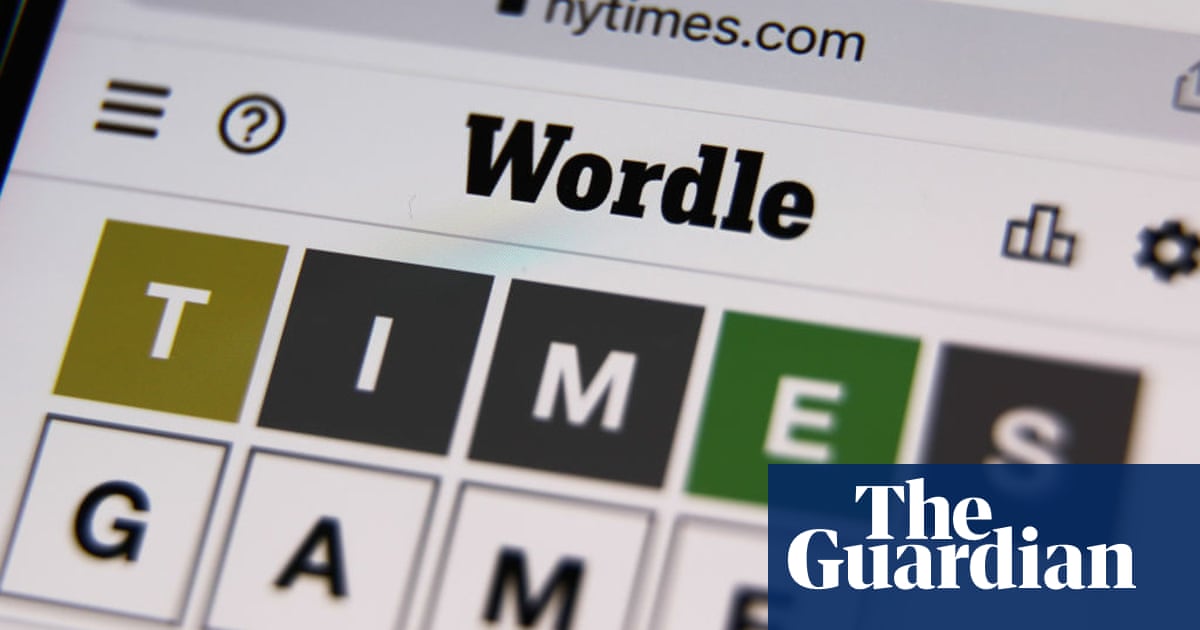
A legal battle initiated by the smash-hit word game Wordle could spell bad news for the similarly named game Worldle.
In Wordle, developed in 2021 by Josh Wardle, players have six attempts to guess a five-letter word. Wordle took off in popularity in 2022 during the Covid-19 pandemic, allowing people across the globe to compete and connect with each other by sharing scores. The game was purchased by the New York Times in 2022 for a “seven-figure sum”.
But Worldle’s creator, Kory McDonald, argues that his game, which requires players to guess a location based on its Google street view, is nothing like Wordle.
“Wordle is about words, Worldle is about the world, Flaggle is about flags,” McDonald told the BBC.
But the New York Times argues that McDonald’s game causes confusion because it is “nearly identical in appearance, sound, meaning, and imparts the same commercial impression”, a legal filing said.
The word game is played by millions of users while only roughly 100,000 people play the geography game each month, according to McDonald.
And unlike Wordle, Worldle does not have an app and can only be played on a web browser.
Still, the nearly identical names may pose a problem for the newer, less popular game.
While other copycat games exist – like Nerdle, a math puzzle, or Yeardle, where players guess the year of a historical event – these are arguably more distinguishable from Wordle than Worldle.
According to the United States Patent and Trademark Office (USPTO): “Trademarks don’t have to be identical to be confusingly similar.”
The USPTO also describes why it is important that trademarks are not “confusingly similar”: “Your trademark is how customers recognize your goods or services in the marketplace and distinguish your goods or services from your competitors. If your trademark is confusingly similar to another trademark and the goods and services are related, consumers are likely to mistakenly believe these goods or services come from the same source.
“This is known as a likelihood of confusion, and it’s the most common reason for refusing registration.”
This article was amended on 31 May 2024 to clarify the Worldle game requires users to guess locations based on Google street views. A previous version described it incorrectly.
https://news.google.com/rss/articles/CBMiTGh0dHBzOi8vd3d3LnRoZWd1YXJkaWFuLmNvbS9nYW1lcy9hcnRpY2xlLzIwMjQvbWF5LzMxL3dvcmRsZS13b3JsZGxlLWxhd3N1aXTSAUxodHRwczovL2FtcC50aGVndWFyZGlhbi5jb20vZ2FtZXMvYXJ0aWNsZS8yMDI0L21heS8zMS93b3JkbGUtd29ybGRsZS1sYXdzdWl0?oc=5
2024-05-31 18:52:00Z
CBMiTGh0dHBzOi8vd3d3LnRoZWd1YXJkaWFuLmNvbS9nYW1lcy9hcnRpY2xlLzIwMjQvbWF5LzMxL3dvcmRsZS13b3JsZGxlLWxhd3N1aXTSAUxodHRwczovL2FtcC50aGVndWFyZGlhbi5jb20vZ2FtZXMvYXJ0aWNsZS8yMDI0L21heS8zMS93b3JkbGUtd29ybGRsZS1sYXdzdWl0
Bagikan Berita Ini














0 Response to "Wordle v Worldle: legal battle ensues over game names - The Guardian"
Post a Comment